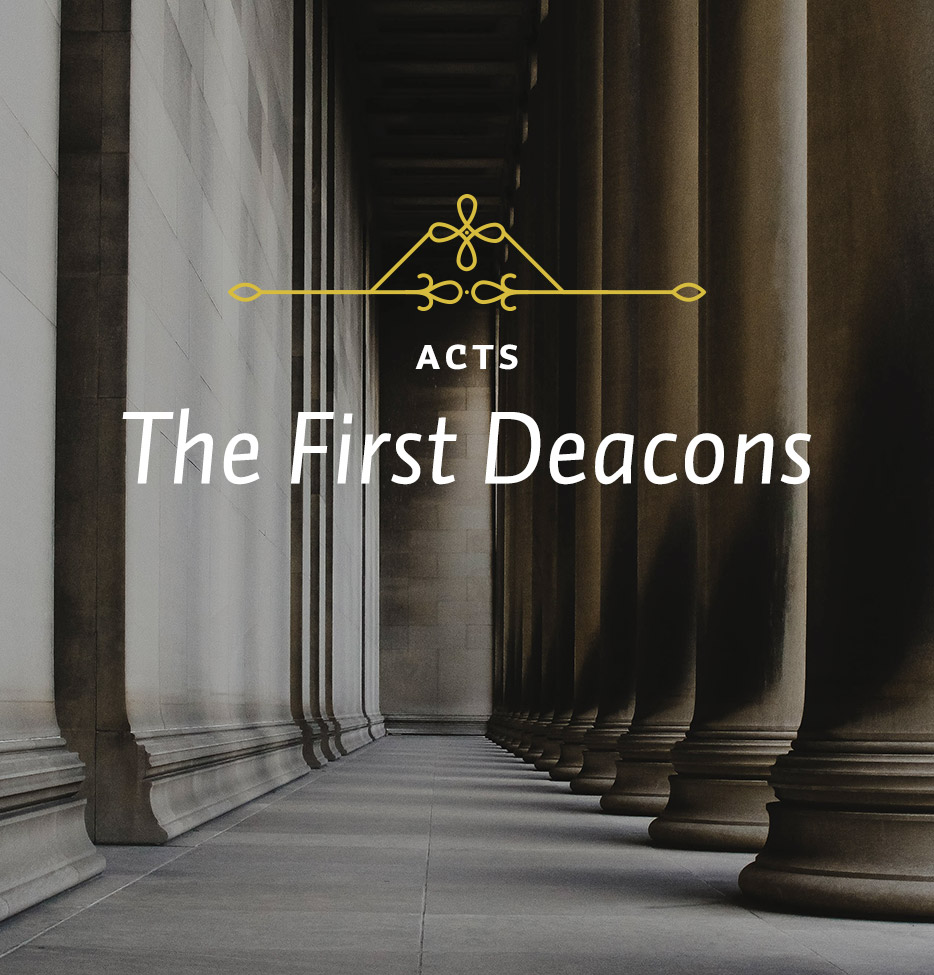How were the apostles to deal with this problem? I find it interesting that on this occasion there was apparently no divine revelation, which is what had happened in the case of Ananias and Sapphira. We do not even find that the apostles held a prayer meeting, though I am sure they did pray about the situation. What we have is an administrative decision. The apostles considered the problem and, no doubt guided by God, said to those who were members of the church, “It would not be right for us to neglect the ministry of the Word of God in order to wait on tables. Brothers, choose seven men from among you who are known to be full of the Spirit and wisdom. We will turn this responsibility over to them and will give our attention to prayer and the ministry of the word.” That is what the church did. The story tells who were elected and what the results of their service were.
It is interesting to compare what the apostles did with what might have been done and has been done in the church since. Some branches of today’s church would throw the complainers out. The church would have been divided formally, and there would have been a First Apostolic Church of Jerusalem on one corner of the city, and across the street on the other corner there would have been a Second Apostolic Church of Jerusalem.
Another solution that is sometimes followed in churches is to shun the difficult people. They are not thrown out. That is said to be “un-Christian.” They are just not talked to; they are ignored. Let them sit by themselves for a while and see how they like it. That will teach them not to make trouble.
One of the things Presbyterians especially do—we are great on this—is to outvote the dissenters. We call a meeting. We ask people to speak. We make a motion, being careful to follow Robert’s Rules of Order. Then when we have our motion and our second, we vote to cut off debate, vote and the majority prevails. Our will is done, and everything has been accomplished democratically. Who can complain? Unfortunately, the losers do not always keep quiet, and ruptures still occur. I have heard people say, “The Holy Spirit speaks through the fifty-one percent vote.” But that is usually not the case, to judge by the outcomes.
Sometimes people separate, a fourth attempt at a solution. “Those people are always causing trouble,” the purists say. “We’ll just leave them to themselves. We’ll start our own church.” That works well until somebody dissents in the “pure” church. Then you have to start another church, and then another one. The pure church always gets smaller and smaller until eventually it is gone. That can hardly impress us as the ideal solution. The apostles might have formed a committee. That would be a fifth approach. Committees do not have to do anything positive. All they have to do is discuss the problem, knowing that if you can delay long enough, the problem may go away. The committee may not have to do anything.






